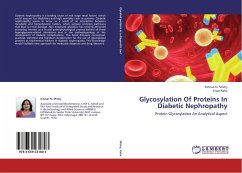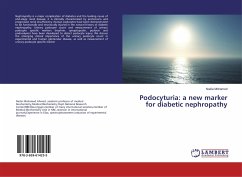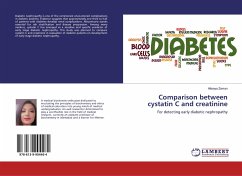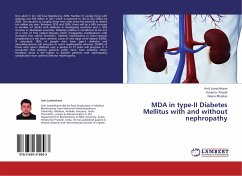Diabetic nephropathy is a leading cause of end stage renal failure, which could account for disabilities and high mortality rates in patients. Diabetic nephropathy seems to occur as a result of an interaction between metabolic and hemodynamic factors, which activate common pathways that lead to renal damage. Non enzymatic glycation has recently attracted increasing interest as a crucial pathophysiological process behind all these hyperglycemia-related alterations and in the pathophysiology of the development of diabetic complications. This book discusses conceptual, practical, statistical and logistical consideration for the use of glycosylated proteins as biochemical markers in diabetic nephropathy. This knowledge would facilitate new approach for molecular diagnosis and drug discovery.
Bitte wählen Sie Ihr Anliegen aus.
Rechnungen
Retourenschein anfordern
Bestellstatus
Storno








